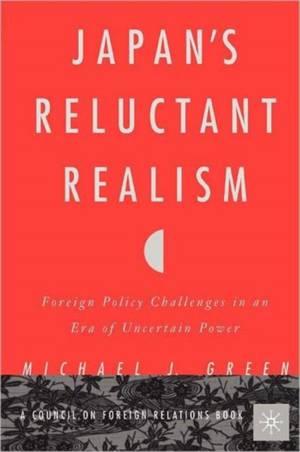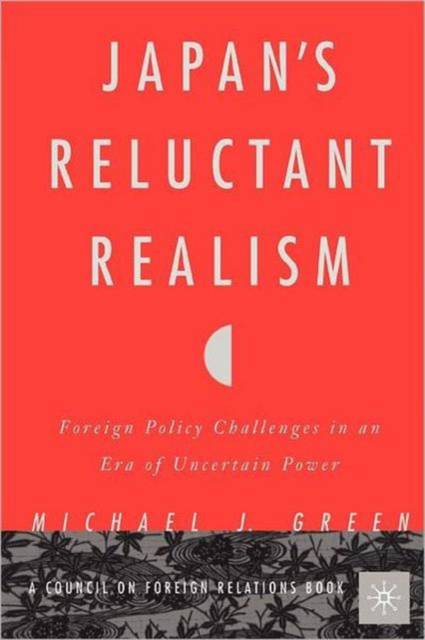
Bedankt voor het vertrouwen het afgelopen jaar! Om jou te bedanken bieden we GRATIS verzending (in België) aan op alles gedurende de hele maand januari.
- Afhalen na 1 uur in een winkel met voorraad
- In januari gratis thuislevering in België
- Ruim aanbod met 7 miljoen producten
Bedankt voor het vertrouwen het afgelopen jaar! Om jou te bedanken bieden we GRATIS verzending (in België) aan op alles gedurende de hele maand januari.
- Afhalen na 1 uur in een winkel met voorraad
- In januari gratis thuislevering in België
- Ruim aanbod met 7 miljoen producten
Zoeken
Japan's Reluctant Realism
Foreign Policy Challenges in an Era of Uncertain Power
M Green
Paperback | Engels
€ 129,95
+ 259 punten
Omschrijving
In Japan's Reluctant Realism, Michael J. Green examines the adjustments of Japanese foreign policy in the decade since the end of the Cold War. Green presents case studies of China, the Korean peninsula, Russia and Central Asia, Southeast Asia, the international financial institutions, and multilateral forums (the United Nations, APEC, and the ARF). In each of these studies, Green considers Japanese objectives; the effectiveness of Japanese diplomacy in achieving those objectives; the domestic and exogenous pressures on policy-making; the degree of convergence or divergence with the United States in both strategy and implementation; and lessons for more effective US - Japan diplomatic cooperation in the future. As Green notes, its bilateral relationship with the United States is at the heart of Japan's foreign policy initiatives, and Japan therefore conducts foreign policy with one eye carefully on Washington. However, Green argues, it is time to recognize Japan as an independent actor in Northeast Asia, and to assess Japanese foreign policy in its own terms.
Specificaties
Betrokkenen
- Auteur(s):
- Uitgeverij:
Inhoud
- Aantal bladzijden:
- 351
- Taal:
- Engels
Eigenschappen
- Productcode (EAN):
- 9781403962355
- Verschijningsdatum:
- 25/09/2003
- Uitvoering:
- Paperback
- Formaat:
- Trade paperback (VS)
- Afmetingen:
- 148 mm x 227 mm
- Gewicht:
- 485 g

Alleen bij Standaard Boekhandel
+ 259 punten op je klantenkaart van Standaard Boekhandel
Beoordelingen
We publiceren alleen reviews die voldoen aan de voorwaarden voor reviews. Bekijk onze voorwaarden voor reviews.









